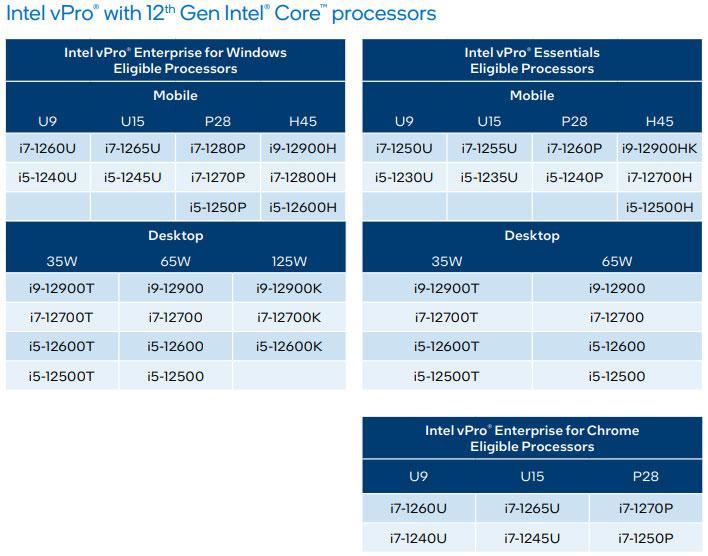Intel unveiled a fresh line of Core processors that emphasize multiple levels of security and data protection.
The chipmaking giant said its 12th-generation vPro Core chips will sport protections that run from the firmware layer to application and memory security.
"Intel vPro features a comprehensive set of security technologies to help protect the full computing stack including hardware, firmware, the operating system, and applications," the chipmaker said Thursday.
At the lowest level, the new chips will sport Hardware Shield, a set of protections that cover the system BIOS chips that run prior to starting up the operating system. The aim, Intel said, is to prevent BIOS code injection attacks that could occur before OS-level security protections begin running.

Once the OS is up and running, Intel is looking to its Control Flow Enforcement (CET) platform to protect memory. Originally introduced for notebooks and now making its debut on desktops, CET was designed to prevent malicious applications from altering the memory addresses of applications in order to redirect the processor to malicious instructions.
Finally, at the top layer, Intel is equipping the Core chips with memory protection. The Total Memory Encryption and VT-rp (Virtualization Technology-redirect protection) platforms help to isolate application code from tampering as it is being run and also protect virtual machine instances from being injected with malicious code.
Intel says that the protections are part of a larger push to get the latest Core chips in line with what it is hearing from its enterprise customers. In addition to the security protections, Intel said that it looked to focus on device management capabilities and specific integration with both Chromebook and Windows operating systems.
One of the big drivers behind the vPro focus, according to the company, was the transition to remote work. With so many employees now opting to work from home, administrators need additional tools to manage and secure PCs from afar.
"12th Gen Intel Core processors feature a new architecture consisting of performance cores and efficient cores that excel at both single-threaded and multi-threaded software environments," Intel said of the new CPUs.
"This architecture empowers users to be more productive and enjoy higher performance from their PC, especially for multitasking and collaboration."
Chip security has become an increasing concern in recent years amid the 2018 disclosure of the Meltdown and Spectre vulnerabilities in modern chip designs, including Intel's. The vulnerabilities allowed an unauthorized party to execute side-channel attacks that grant access to data stored in memory. The effort to patch the vulnerabilities across all affected product lines proved challenging, as some updates negatively impacted chip performance while other updates had to be pulled.









